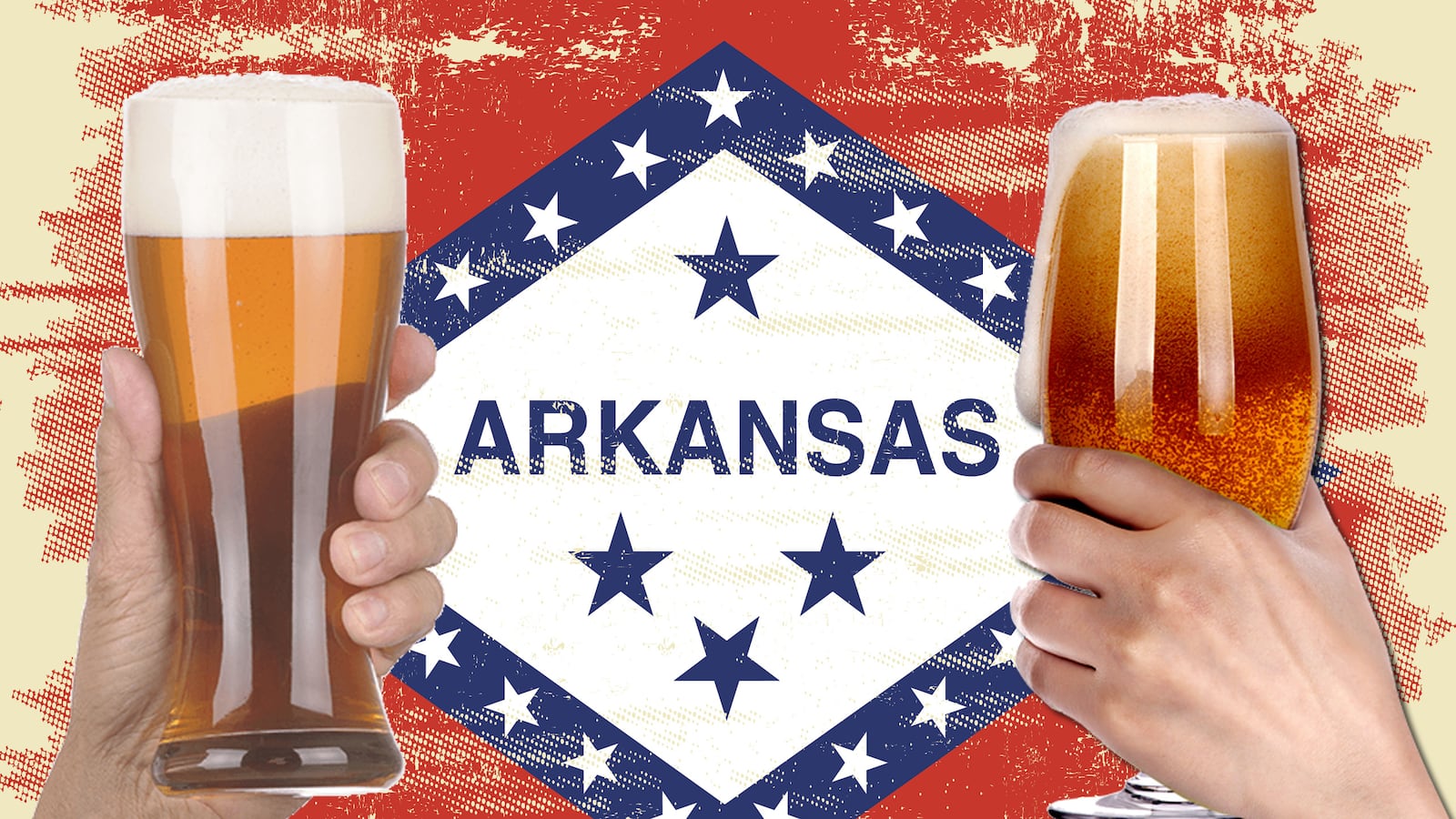The residents of Arkansas decide Tuesday whether to legalize the sale of an intoxicating substance statewide. Arkansans will not be voting to legalize marijuana though—they’re voting on booze.
Issue 4, better known as the “Arkansas Alcoholic Beverage Initiative,” declares that “effective July 1, 2015, the manufacture, sale, distribution and transportation of intoxicating liquors is lawful within the entire geographic area of each and every county of this state,” going on to say that any laws conflicting with the amendment (the dry laws of various counties and towns) would be null and void.
Despite the obvious appeal, the odds are long that Arkansas will legalize alcohol statewide in 2014. A September poll found 79 percent of likely voters “believe that counties should decide for themselves whether to be wet or dry.” Fifty-four percent are against the amendment, while 40 percent support it.
Arkansas has long had a contentious relationship with alcohol. It was ground zero for nineteenth century temperance efforts, and by 1914 only nine of the state’s 75 counties had open saloons serving alcohol. The following year the legislature passed the Newberry Act, effectively banning the manufacture and sale of alcohol within the state well before the national temperance wave crested in the form of Prohibition.
After the end of Prohibition in 1933, alcohol was once again legal throughout Arkansas. Temperance advocates set about addressing this county by county, with the result that in some “wet” counties, alcohol remained legal, while in “dry” ones, its manufacture and sale was prohibited. It’s a system that remains in place today. Despite laws passed in 1935 and 1985 that raised the bar for outlawing alcohol within a jurisdiction (offset by a ballot initiative in 1942 that made it easier), 37 of the state’s counties are dry, while 38 are wet.
In an age when most Americans are concerned with legalizing weed and restricting tobacco, the debate going on in Arkansas seems to be from a bygone era—just like the measure’s opposition.
There’s the religious community, led by Pastor Revel Kidd, who maintains, “Nothing good comes from it. It causes a lot of problems, marital trouble, problems with children and problems in general.” There’s also the organization Citizens for Local Rights, which, quite intuitively, thinks counties and local jurisdictions should be able to decide for themselves whether alcohol is legal.
Those opposition groups have some strange bedfellows, though, chief among them the Arkansas Beverage Retailers Association. Presumably they don’t agree that nothing good comes from a glass of wine, but they’ve nonetheless raised nearly half a million dollars in opposition to the measure. The association says the initiative’s passage would be “catastrophic for county line liquor stores” and would allow large-scale retailers like Walmart and Kroger to dominate the market.
Most of the state’s dry counties border on a wet one. As a result, the wet sides of those borders are home to a disproportionate number of liquor stores that serve drinkers from the wrong side of the county line. If those dry counties get wet, those border stores could find their revenue drying up. The current system also seems to keep the normally dominant nationwide retailers at bay. Smaller alcohol retailers—like Shamrock Liquor, who have donated $150,000 to the ABRA’s fund—are spending a lot of money to keep it that way.
The initiative’s primary supporter is Let Arkansas Decide (LAD). The organization trumpets Issue 4 as a way to create jobs, generate tax revenue for local governments, and decrease drunk driving by reducing the distance people have to travel to obtain alcohol. The group has raised $165,000, mostly from out of state, and has struggled to gain traction after getting the initiative on the ballot.
Nine other states have one or more counties that completely prohibit the sale of alcohol, but only Kentucky comes close to Arkansas in terms of its percentage of dry counties. A temperate approach to alcohol has always been in the state’s DNA. For many, like Pastor Kidd, that’s a good thing. For thirsty residents in dry counties, that means another long drive for a beer.






